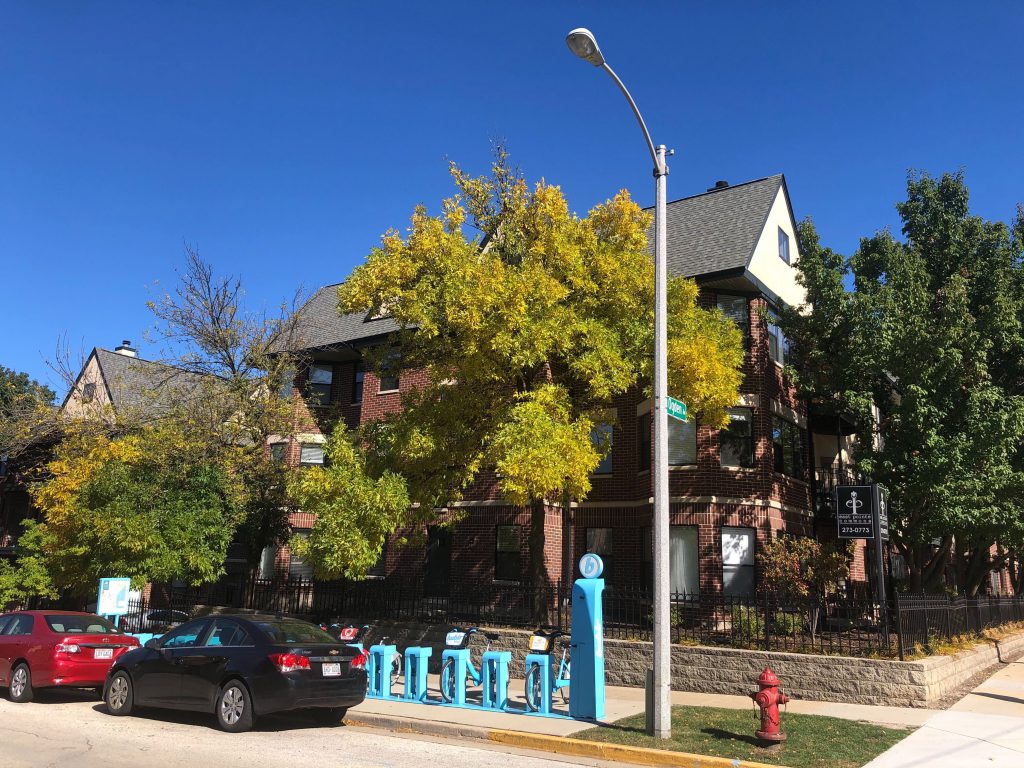Stimulus Funds Won’t Cancel Streetlighting Fee
Sorry taxpayers, money from fee can't be replaced by pandemic aid, federal rules say.
Milwaukee property owners just received their first quarterly city service bill with the new street lighting fee included. Because of new federal guidance, it doesn’t look like it will be the last because of new federal guidance.
Backed by Mayor Tom Barrett, a special Common Council meeting was held on April 1st to consider suspending the fee for two quarters in light of the pending receipt of approximately $400 million in federal funds via the $1.9 trillion American Rescue Plan Act.
On Wednesday morning, the council members learned they can’t use the funds for that purpose even if they wanted to.
Budget director Dennis Yaccarino told the Finance & Personnel Committee the long-awaited funding guidance said that spending the funds to replace lost revenue relies on a comparison to 2019 revenues. The fee didn’t exist in 2019, so the city technically didn’t lose the revenue.
“It was in hindsight a good thing we held,” said committee chair Alderman Michael Murphy, one of the members that originally backed the fee suspension.
The new fee, estimated to cost the average single-family home $40 per year, would raise $9.7 million annually.
The proceeds from the fee are intended to boost both the long-term reliability of the city’s 77,000 street lights and to pay more competitive wages for the city’s electricians, which should help assure a quicker response time when an outage occurs. The fee also allows the city to get around a state property levy cap and is paid even by non-profit entities that get city services yet are exempt from property taxes.
“I have been against this street lighting fee since the budget [debate],” said Alderman Russell W. Stamper, II during the April meeting in pushing his colleagues to suspend the fee and substitute the lost revenue with $5 million of the city’s stimulus funds. “I don’t know how I can vote for a street lighting fee when the lights are out.”
“It might not line up as best as it could with the kind of transparency and oversight we’re shooting for,” said Kovac. “I get the timing pressure we’re under, we’re having this meeting during the ninth inning of opening day.” The Milwaukee Brewers were playing their first game as the council debated.
Kovac’s push to delay acting was recognized Wednesday by Murphy.
“That smirk from Alderman Kovac is as big as this room,” said Murphy. He said the alderman wouldn’t boast, but he would on his behalf. “I’ll say ‘he told you so.'”
“I knew that was coming,” said Yaccarino.
“Many council members went out supporting this because the mayor called for this,” said Muprhy. “That’s a pretty big mistake.”
“To be honest it wasn’t a mistake,” said Yaccarino. “We tried to jump on something prematurely before we had the guidelines. We know what the risk was.”
The budget director said the council was warned of that risk.
“Then we stand corrected,” said Murphy.
“Why were you willing to take the risk when it could be completely wrong?” asked Alderwoman JoCasta Zamarripa.
“Because I was willing to risk losing $2.5 million that I believed I could have recovered from other places,” said Yaccarino. The city can often delay on hiring or other projects to cover shortfalls in its $1.6 billion budget.
Murphy asked why not try that again?
“Clearly the guidelines don’t address it, so the risk is much greater this time that it won’t be covered,” said the budget director.
“I thought you all during [the budget debate] sold this on a $9 million hole?” asked Stamper.
“It’s a new fee based on a $9 million hole,” said Yaccarino. The city’s property tax revenues are capped and state shared revenue has fallen since 2003, so any cost increases must be met with cuts or new revenue sources.
“Does this qualify for the infrastructure allotment?” asked Stamper, referring to the pending federal bill as a certainty.
“We don’t know until that bill passes,” said Murphy. Congress isn’t scheduled to even start debating it until July.
Until then, Milwaukee homeowners should expect to spend approximately $10 each quarter on the new fee. The improved lighting performance, initially faster restoration on outages, is expected to be noticeable starting in 2022.
But some council members aren’t content to wait until then.
Stamper said he has ideas he would like to talk to Yaccarino about.
Other members also have ideas.
During last week’s Public Works Committee meeting, Robert Bauman and Mark Borkowski openly discussed using approximately $100 million of the federal allocation to fund the capital costs of upgrading the failing lighting circuitry and upgrading to LED lights. The hope is that the upgrades would improve the system’s reliability and save money, potentially negating the need for the street lighting fee in the future. Public Works Commissioner Jeff Polenske said it was something the administration was looking at.
For a detailed look at the street lighting fee, see Urban Milwaukee’s story from March 22nd.
What Can The Money Be Spent On?
Yaccarino ticked off a list of cans and can’t for using the federal money, the first tranche of which has yet to be deposited.
It can’t be used to reduce taxes, pay the city’s pension liability or pay down debt.
The funds can also be used for a wide variety of health-related costs from addressing the pandemic and related issues, including mental health and lead paint. That includes lead paint abatement.
It can also be used for broadband internet access. “We are still checking on some things and would like some clarification, but we are moving forward on broadband,” said Yaccarino.
“Housing is fairly wide open,” he said. That includes issues related to unemployment, evictions, mortgage counseling. “We can be creative from that standpoint.”
Further clarification on spending guidelines is expected within 60 days.
The city has four years to spend the funds.
Political Contributions Tracker
Displaying political contributions between people mentioned in this story. Learn more.
- December 31, 2020 - Tom Barrett received $500 from Jeff Polenske
- December 2, 2018 - Tom Barrett received $400 from Jeff Polenske
- May 25, 2017 - Tom Barrett received $400 from Jeff Polenske
- February 11, 2016 - Nik Kovac received $50 from Jeff Polenske
- February 1, 2016 - Tom Barrett received $400 from Jeff Polenske
City Hall
-
Council Blocked In Fight To Oversee Top City Officials
 Dec 16th, 2025 by Jeramey Jannene
Dec 16th, 2025 by Jeramey Jannene
-
Latest Effort to Adopt New Milwaukee Flag Going Nowhere
 Dec 3rd, 2025 by Jeramey Jannene
Dec 3rd, 2025 by Jeramey Jannene
-
After Deadly May Fire, Milwaukee Adds New Safety Requirements
 Dec 2nd, 2025 by Jeramey Jannene
Dec 2nd, 2025 by Jeramey Jannene





















